It's a strange thing, but I always seem to do more gardening in autumn, when the whole thing looks scruffy and needs to be tidied up. I guess summer is a busy time with lots going on, and I have a habit of planting things in spring, ignoring them for the summer while they grow out of control, and then tidy everything up in the autumn.
So this time, I decided to clear out some of the undergrowth under the cherry and fig trees.
The cherry tree is a big success, starting out as a single cherry stone from a cherry I ate the month we moved into the house. It grew and grew, and I kept putting it in bigger pots, and then planted it out in the flowerbed. Where it kept growing. It's kind of crowded out the fig tree which seems to prefer to grow horizontally out over the lawn.
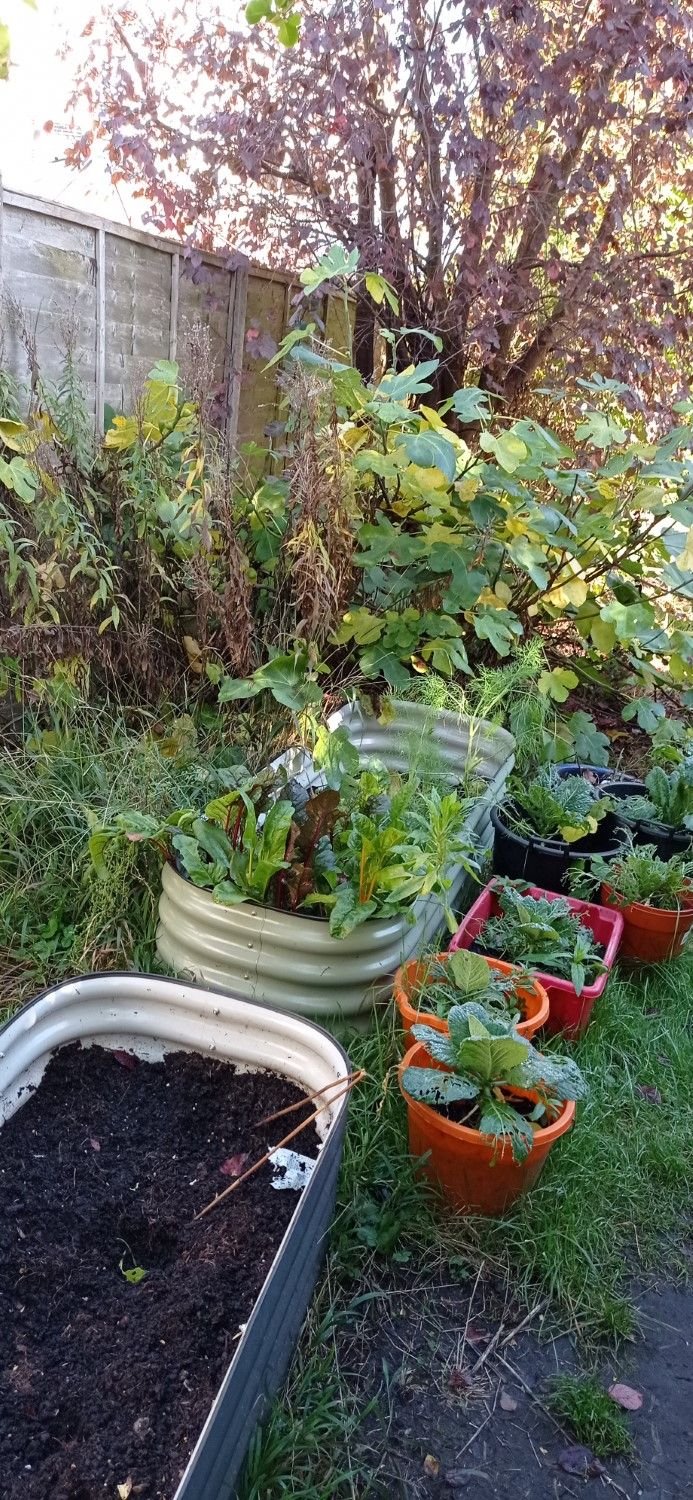
The photo above is the "before" situation from the fig tree side. It's basically a semi-circular flowerbed with a low brick retaining wall. Grass and weeds have grown up behind the raised beds, and the fig tree is almost overwhelmed by whatever the tall plant with the thin droopy leaves is (now going brown).
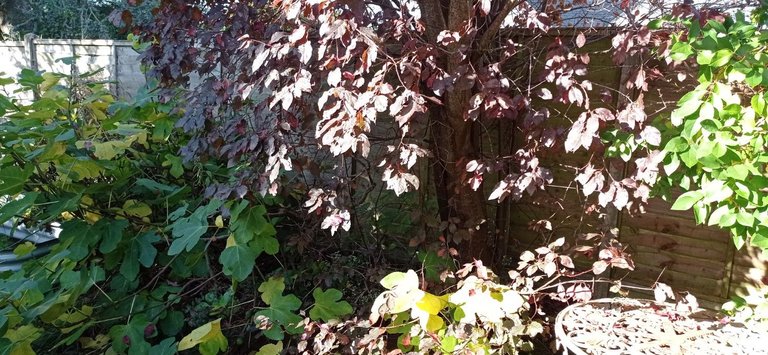
This is the "before" from the cherry tree side. The main issue here is a number of thin low branches off the cherry tree itself, plus quite a few hazel and acer saplings that have sprouted up behind it. There are also some self-seeded cherry saplings, but they are so far behind the fig tree that it'll be easier to get to them when the leaves have all gone and I prune the fig itself.
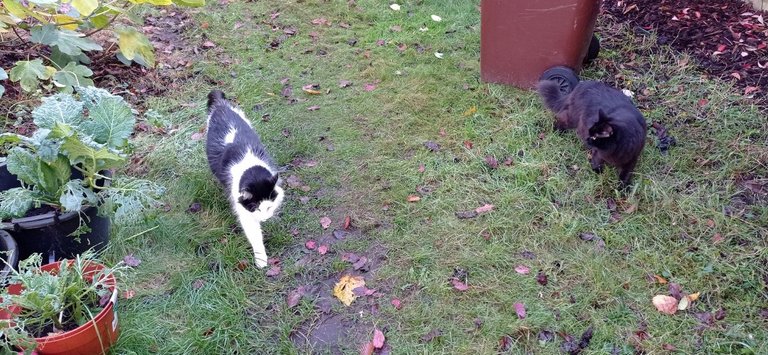
Duncan and Chester both came down the garden to see what I was doing. Or perhaps they decided that I'm staff and needed supervision....
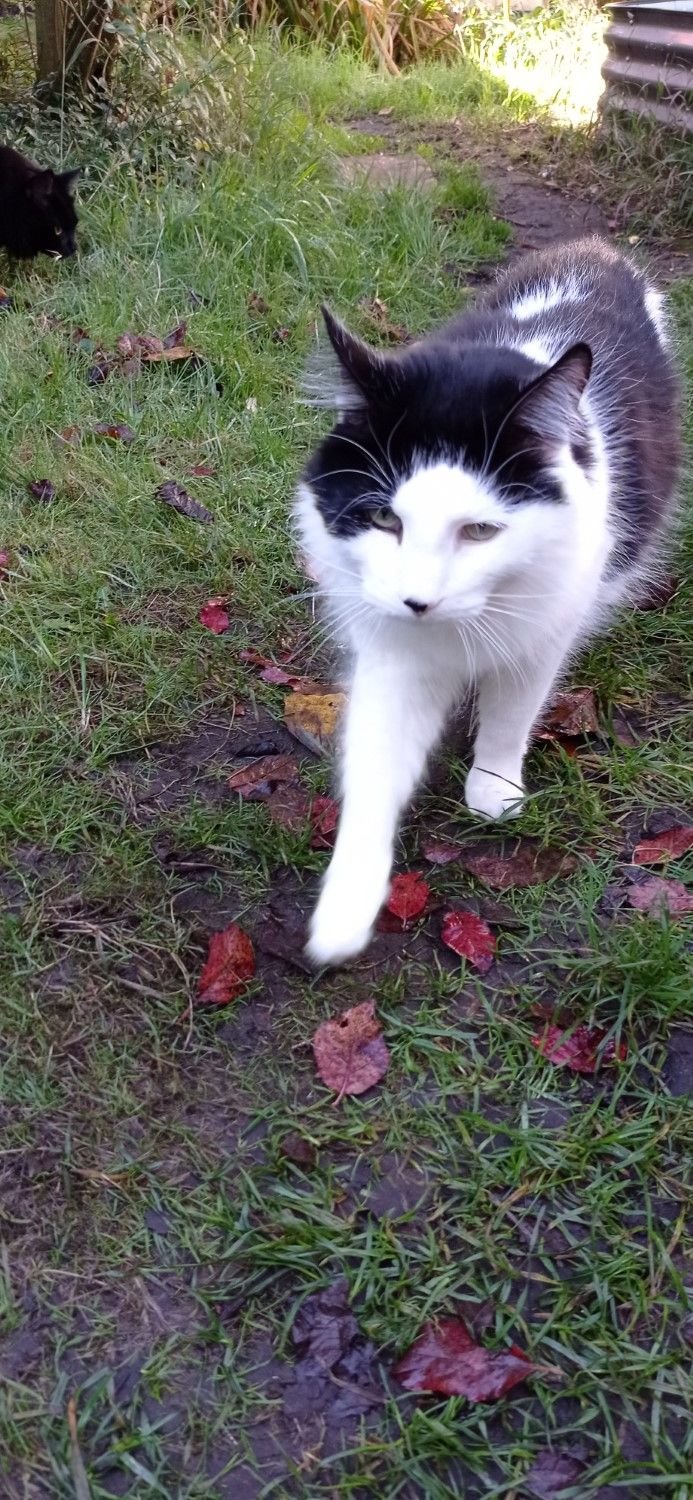
I must admit I didn't take any "during" photos. They'd just show different amounts of undergrowth gone, and it would have got the phone immensely muddy. I did all this work on Sunday after we'd had a lot of rain the week before, and the earth here turns to clinging mud very easily.
Geologically, we're on what's called the Bracklesham Group, which is made up of alternating layers of sandy gravel and London clay. In the 19th century, our road was mostly occupied by potteries and ceramic workshops, and the town was known for it's distinctive earthenware pottery.
But what this means is that when it rains, the earth turns into dense, heavy mud that gets everywhere. The tall spindly plants around the fig tree turned out to be two or three stems growing up from solid root clusters that had to be dug out with a proper long-handled digging fork.
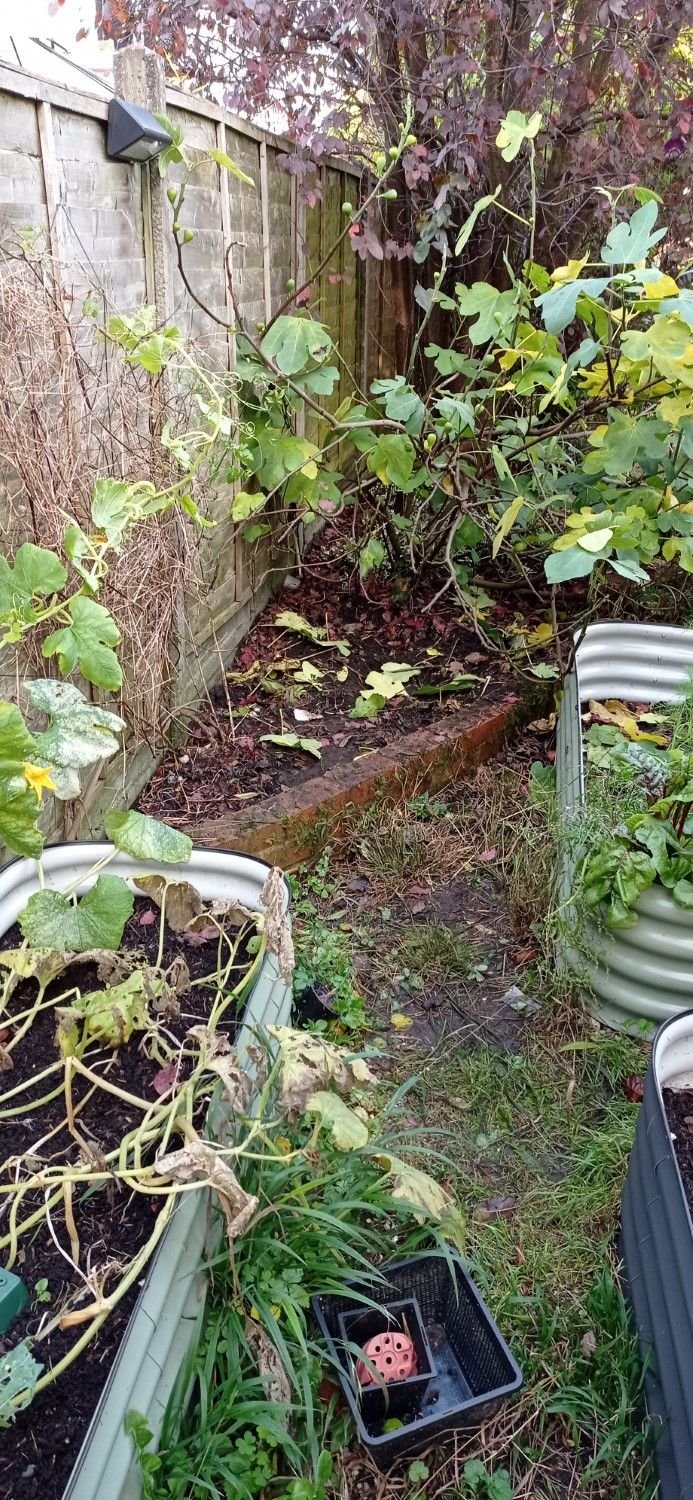
Here's the "after" from the fig tree end. Leaves were just dropping off the fig tree every time I touched it, so hopefully soon it'll be bare and I can prune it once the weather gets a bit colder. It still looks scruffy, but at least the weeds are gone !
But the spaghetti squash has decided that even though all the bottom leaves are dying, it's going to climb up and try to make make one last fruit. Once it's done that, I'll cut the dead climber down; it'll be back stronger than ever next year.
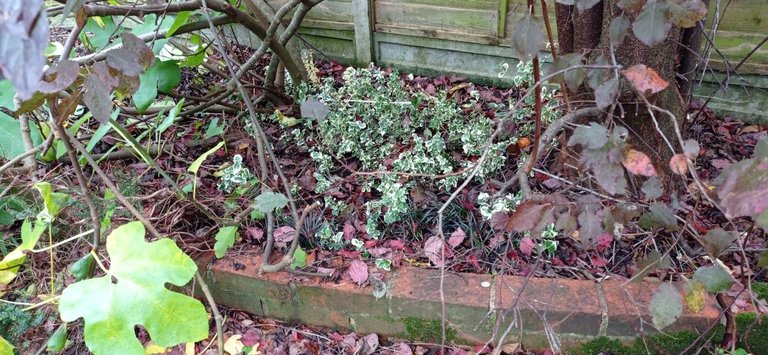
This is the "after" between the cherry and fig trees. I've left the variegated ivy, it's good ground cover for the frogs to hide under and helps stop other weeds coming up. But at least we can see the fence again !
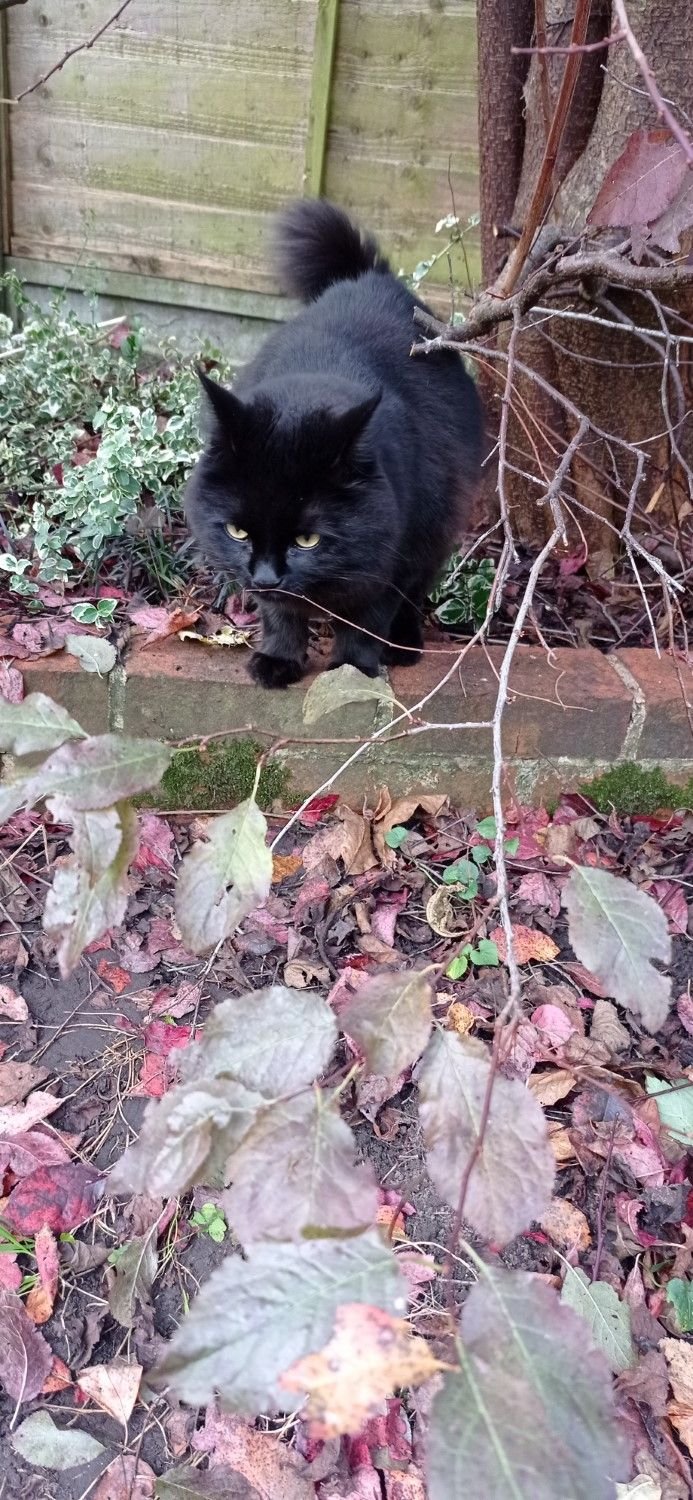
Chester checking what I've been doing. He's unimpressed. He liked hiding like a ninja in the undergrowth, but it made him really hard to find when it was time for him to come in !
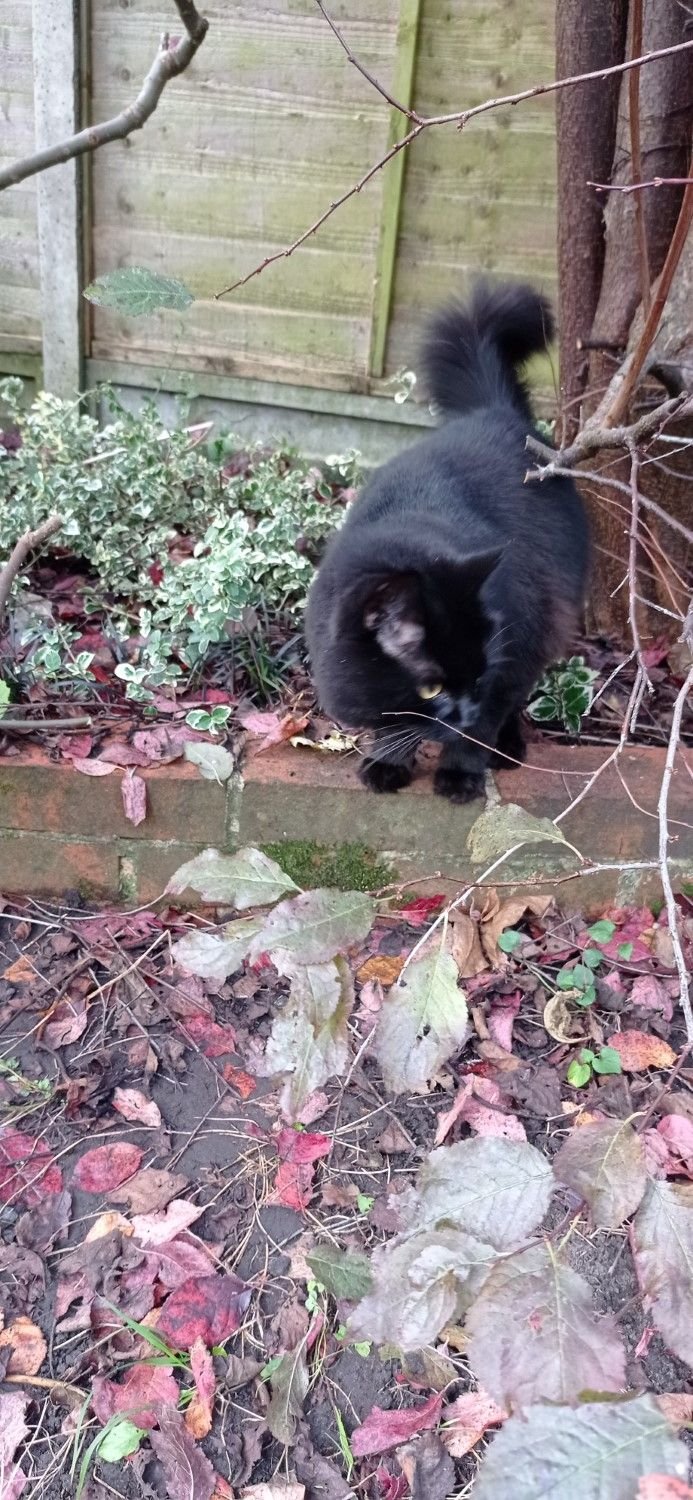
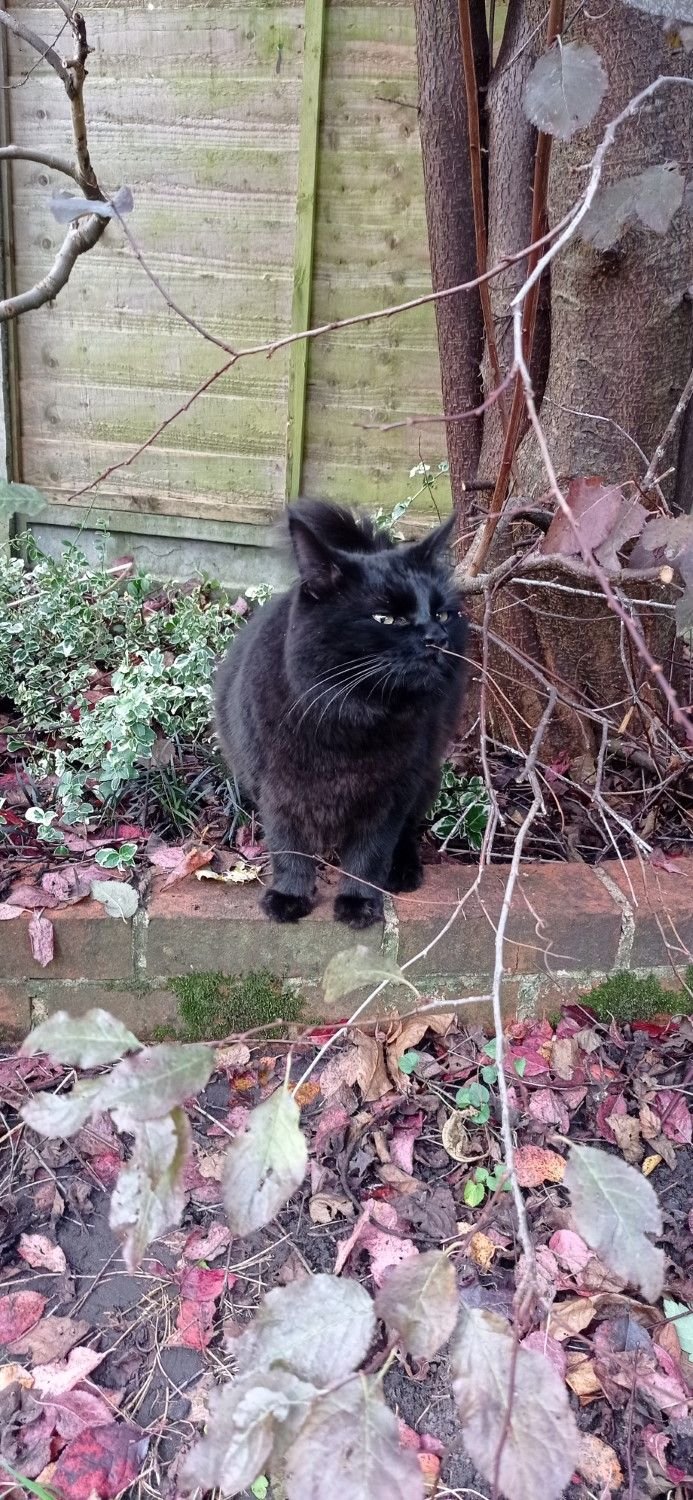
But he's happy we left his scratching branch in place (at least for now).
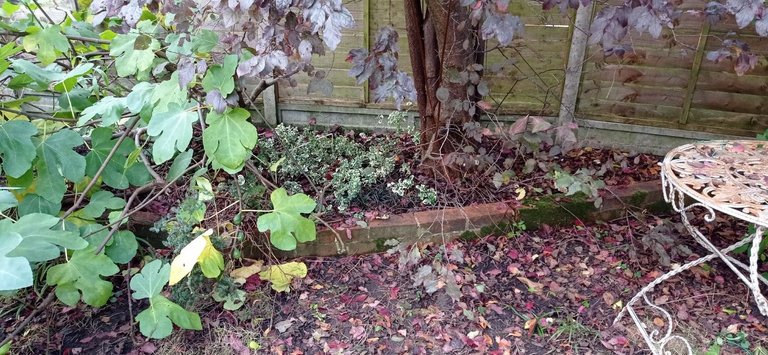
I think I'll need to re-seed the lawn under the cherry tree next spring. Under the fallen leaves, it's pretty much bare earth. During the summer, the leaves on the lower branches just shaded it too much, but hopefully that won't be so bad next year.
So that's what I spent my Sunday doing. It took all afternoon, especially because I was being careful not to disturb the fig or cherry roots, but doesn't look like I did much when I took the after photos ! But a completely full garden waste bin tells another story....

